Doing This With Your Avocados Could Be Putting Your Health at Risk, FDA Warns
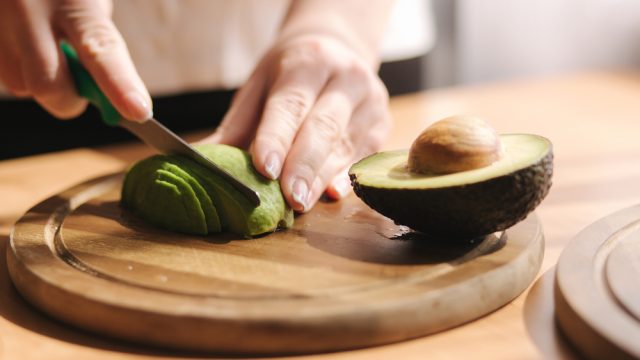
Whether you’re putting it on toast, slicing it for a salad, or mashing it up to make a fresh batch of guacamole, there’s no denying that avocados are a kitchen staple. But for as popular as the fruit may be, it’s also notoriously one of the most fickle pieces of produce when it comes to timing their ripeness just right so they don’t go to waste. And while some may go to great lengths to ensure they don’t turn mushy too quickly, the Food & Drug Administration (FDA) is now warning that doing one thing while storing avocados could be a potential health risk. Read on to see which recent viral hack the agency advises against for safety reasons.
READ THIS NEXT: Never Prepare Chicken Like This, CDC Warns.
There are easy ways to tell whether or not you should eat an avocado.
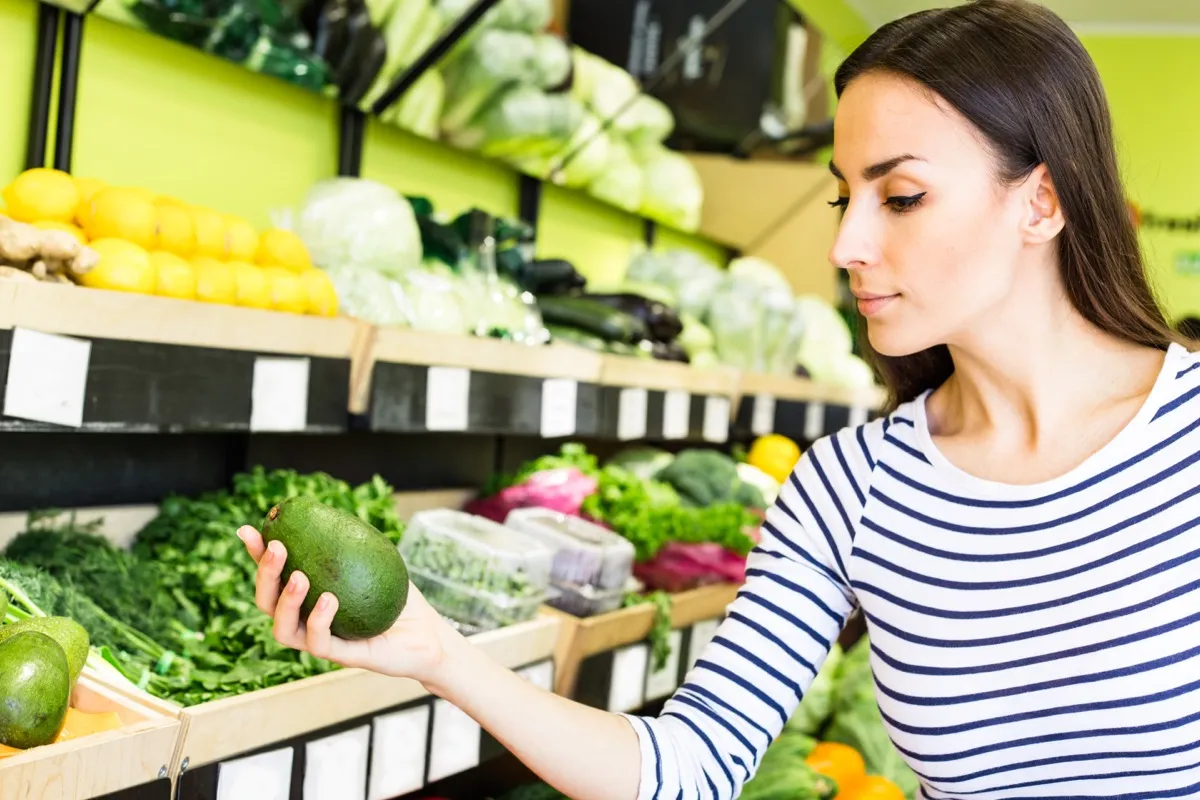
Even before you’re racing against time to work a ripening avocado into your meal plan, anyone who considers themselves a fan of the fruit is no stranger to the careful selection process at the grocery store. But while the idea of a mushy green avocado may seem gross to even look at, eating a spoiled avocado could potentially get you sick. According to Healthline, rancidity in the fruit can “result in the formation of potentially toxic compounds,” which may give off “a chemical odor and taste.”
If you’re looking to tell just how fresh an avocado is, start by looking at the brightness of its skin: Less ripe fruit will be lighter green, while darker fruits will be closer to ripeness. Giving an avocado a gentle squeeze is famously a major indicator of freshness. Any avocados that feel too firm still have some time before they’re ready to be eaten, but any that feel mushy or hollow have gone past their prime and should be thrown out.
Once you’ve decided to cut open your avocado, you can visually inspect the fruit for signs of spoilage. If you notice mold anywhere in or on the fruit, large brown and black spots throughout the flesh, a stringy texture, or dark streaks in the fruit, it’s a sign that the avocado is likely rancid and too dangerous to eat. “Don’t try to salvage any part of a rancid, sour-smelling, or moldy avocado, as it has the potential to make you sick,” Healthline says.
The FDA warns that storing avocados in one particular way poses a serious health risk.
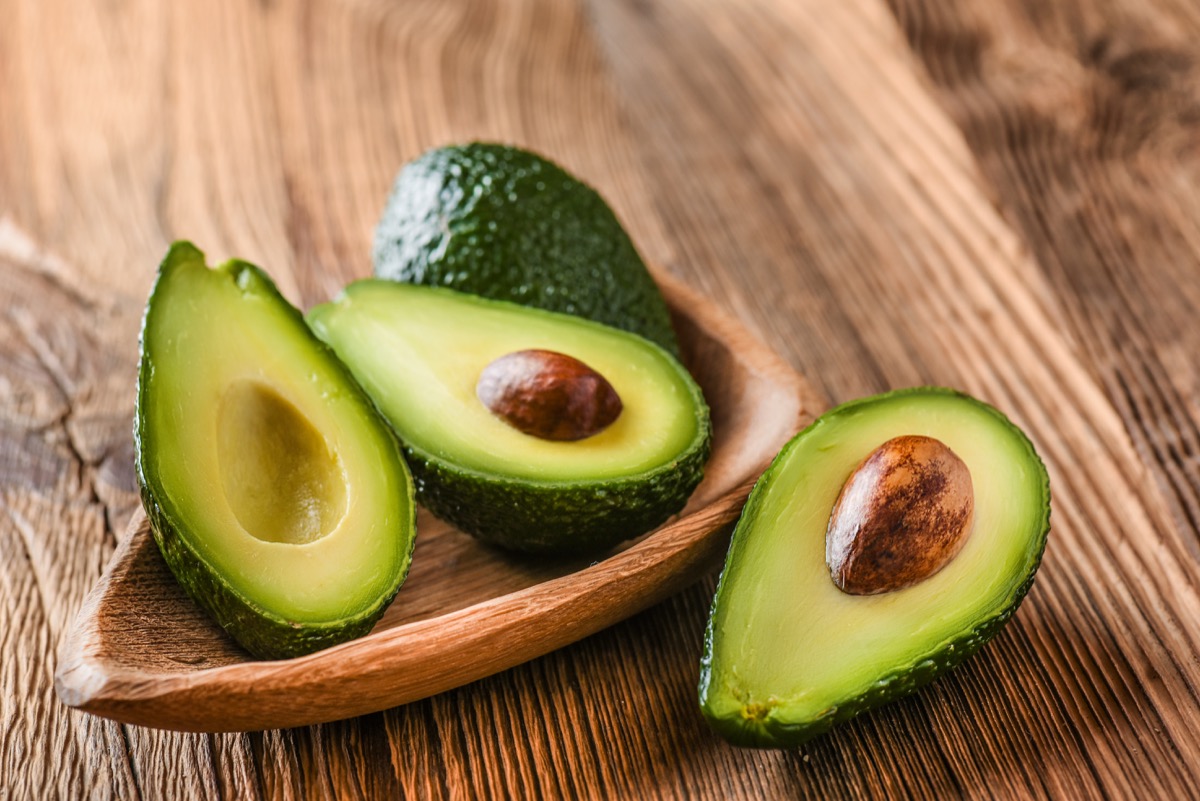
But while no one likes ending up with an inedible, mushy piece of fruit, doing certain things to keep your avocados from spoiling could present a different health risk. In a viral Facebook post from February shared over 206,000 times, one user showed how storing avocados submerged in water in the fridge could keep them perfectly fresh for two weeks, NBC’s Today reports. But while testing appears to yield brilliantly green, edible fruit, officials urged against using the kitchen hack.
“The FDA does not recommend this practice. The main concern is with the possibility that any residual human pathogens (i.e., Listeria monocytogenes, Salmonella spp., etc.) that may be residing on the avocado surface, may potentially multiply during the storage when submerged in water,” an agency spokesperson told Today.
RELATED: For more up-to-date information, sign up for our daily newsletter.
Research has shown avocados may pose more risk of foodborne illness than most people realize.
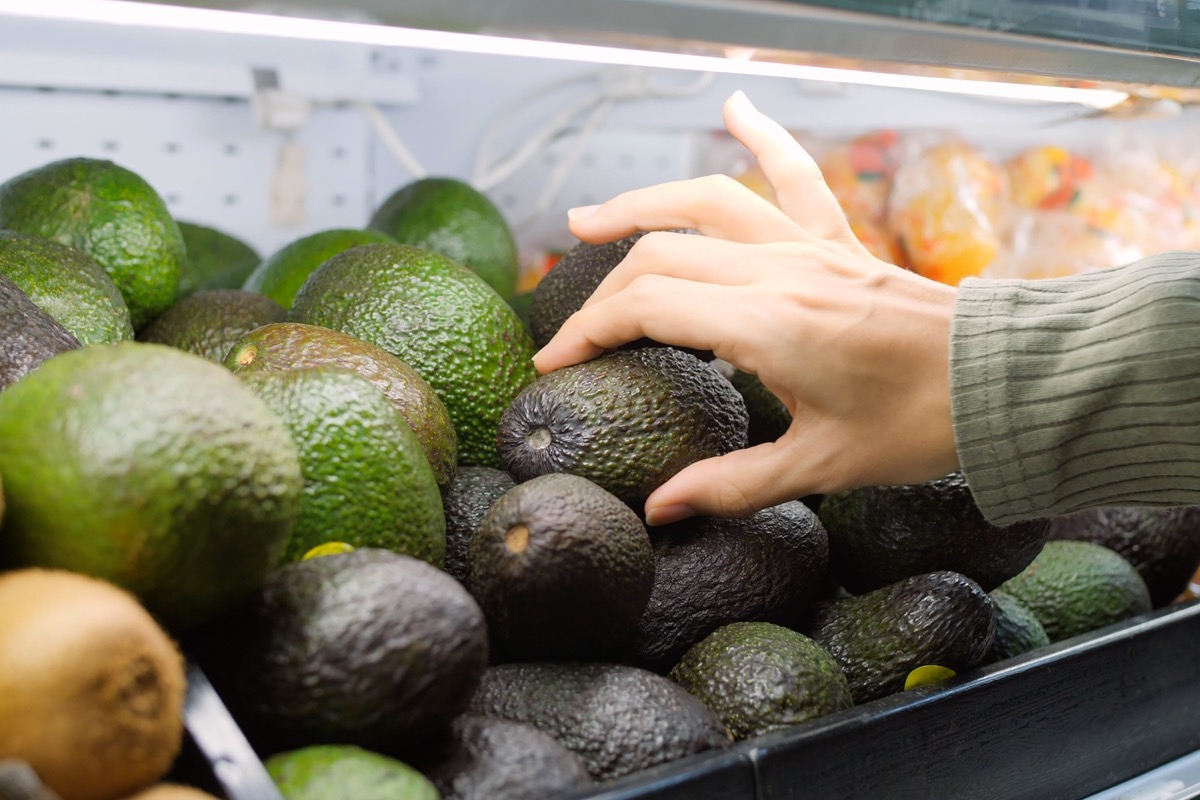
When it comes time to eat them, avocados often get treated the same way as a banana or orange and are rarely washed as part of the preparation process. But according to research published by the FDA in 2018, avocados can actually be teeming with dangerous microorganisms. After testing 1,615 avocado samples between 2014 and 2016, results found that 0.74 percent of its samples tested positive for Salmonella, while 0.24 percent of the avocado flesh samples and 17.73 percent of the avocado skin samples tested positive for Listeria monocytogenes. Both bacteria can cause serious and potentially fatal illnesses when consumed.
Because of this, the federal government recommends rethinking how you prepare avocados, advising: “Even if you plan to cut the rind or peel off the produce before eating, it is still important to wash it first so dirt and bacteria aren’t transferred from the knife onto the fruit.”
But while it may seem the bacterial issues are only surface deep, the agency says other studies have shown using the water storage hack can still pose a health risk. “In addition, research performed by FDA scientists has shown that Listeria monocytogenes has the potential to infiltrate and internalize into the pulp of avocados when submerged in refrigerated dump tanks within 15 days during refrigerated storage,” a spokesperson told Today. “In this case, even surface disinfecting the avocado skin prior to slicing would not be able to remove the contamination.”
There are other easy, safe ways to keep your avocados fresh for longer.
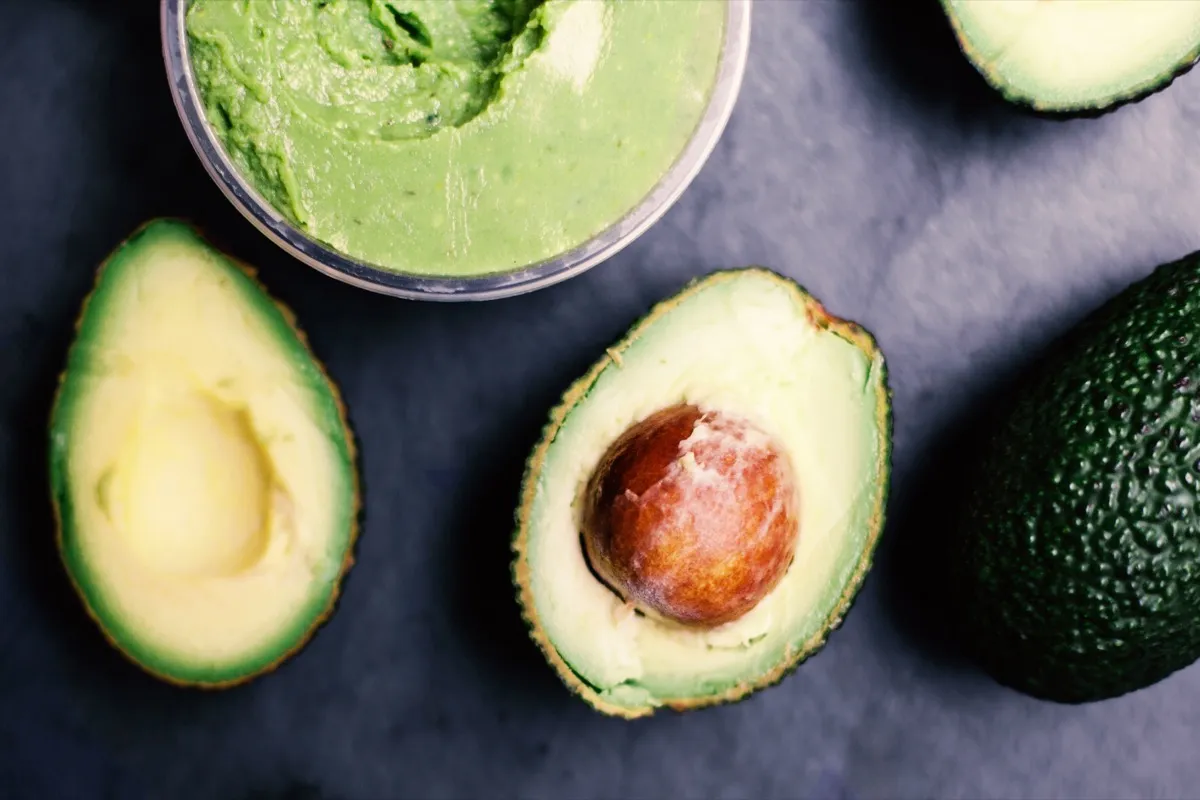
If you’re still fretting over how to keep your avocados from turning too quickly, there are still some simple and safe ways to ensure they’ll last long enough for you to enjoy them. You should store any underripe avocados on your countertop before tossing them into the refrigerator just as they are about to ripen or become ripe, according to Eating Well. By placing it in a sealable airtight container that can fit into your produce drawer, you can see the fruit’s lifespan last for as long as two weeks.
If you have half an avocado rolling about your fridge, you can still make sure it stays good for later. According to Today, apply a few drops of lemon or lime juice onto the cut surface of the fruit before covering it with plastic kitchen wrap, making sure it presses as much against the flesh as possible to minimize air contact. This trick can buy you an extra day or two of freshness from your avocado.
READ THIS NEXT: Never Store Your Potatoes Near This One Thing, Experts Say.